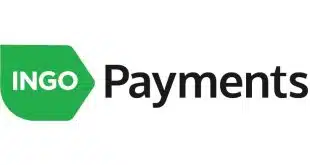A new report from Aite Group LLC gives some insights into how open-loop prepaid card processors work. And building on strengths and correcting weaknesses will be key as the recession, the specter of government regulation, and growth opportunities abroad challenge processors to improve, according to the report. Aite analyst Adil Moussa gathered data from vendors that answered a lengthy questionnaire about their processing systems and technology platforms, features and functionality, pricing, customer service, and other matters. The Boston-based firm also talked with an undisclosed number of open-loop prepaid card program managers. Using a point system based on a company's capabilities, Aite's survey ranked Houston-based FSV Payment Systems Inc. and Salt Lake City, Utah-based Galileo Processing Inc. as tied for the top spot at 16 points each. Las Vegas-based eCommLink and i2c Inc., Redwood City, Calif., tied closely behind at 15 points each. Next was Milwaukee-based Metavante Corp., which at 13 points ranked slightly ahead of the company that bought Metavante this month, Fidelity National Information Services Inc., Jacksonville, Fla., 12 points. Also with 12 points were Atlanta-based First Data Corp. and Springbok Services Inc., Englewood, Colo. A lower score doesn't indicate a company has inferior systems, according to Moussa, adding that all the processors examined do good to excellent jobs overall. For example, Springbok ranked on the lower end mostly because it confines itself to one niche of the prepaid market, non-reloadable gift cards. Scoring higher “doesn't mean anything to the [processor's] client at the end of the day,” he says. FSV scored high because of its broad services and flexible technology, according to the report. Galileo meanwhile, “shows amazing features and functionality,” the report says, and also stands out for other things such as speed of execution. Conversely, its fast growth also has revealed some weaknesses in operational execution, the report says. While insightful, the report isn't a complete picture of the prepaid processing industry because a number of major players declined to participate. They included Altair Financial, CoreCard, U.S. Bancorp, Green Dot, NetSpend, M2 Global, and Visa. Meanwhile, the recession is putting pressure on the processors in the form of lower prices, according to Moussa. The new pricing plan Wal-Mart Stores Inc. is implementing for its MoneyCard program, for instance, sets most of its fees at just $3, far below the competition. American Express Co. is doing away with prepaid card maintenance fees after the 13th month (Digital Transactions News, Sept. 30), and PayPa1 Inc. has come out with a low-cost prepaid card for students. “Recession really played a role in bringing those prices down, and also it played a role in that there are less and less incentives being given by companies to employees,” Moussa notes. So-called incentive cards have been a growth niche in the prepaid market. Other obstacles in the processors' path to growth and profits could come from government. Eight states already have laws dealing with open-loop prepaid cards?mainly their expiration dates and fees. And Congress is considering a change in the Electronic Fund Transfer Act that would give states more power over prepaid cards, according to Aite. The net effect could be more complexity and cost in program management, and older processing technology might have a hard time keeping up. “Different processors' response time to accommodate changes will become a definite differentiator for issuers looking to sign up with a processor,” the report says. At the same time, foreign markets present new opportunities for U.S.-based prepaid card processors. In some respects, establishing an overseas beachhead in prepaid cards is easier than related markets such as credit cards, which rely on credit bureaus and sophisticated risk control. “Prepaid cards create an equal footing for issuers and program managers to issue cards all over the world,” the report says.
Check Also
QorPay Adds Services From Visa’s Cybersource to Its Payments Menu
QorPay Inc. reported Thursday that it has integrated its payment technology with Visa Inc.’s Cybersource …




